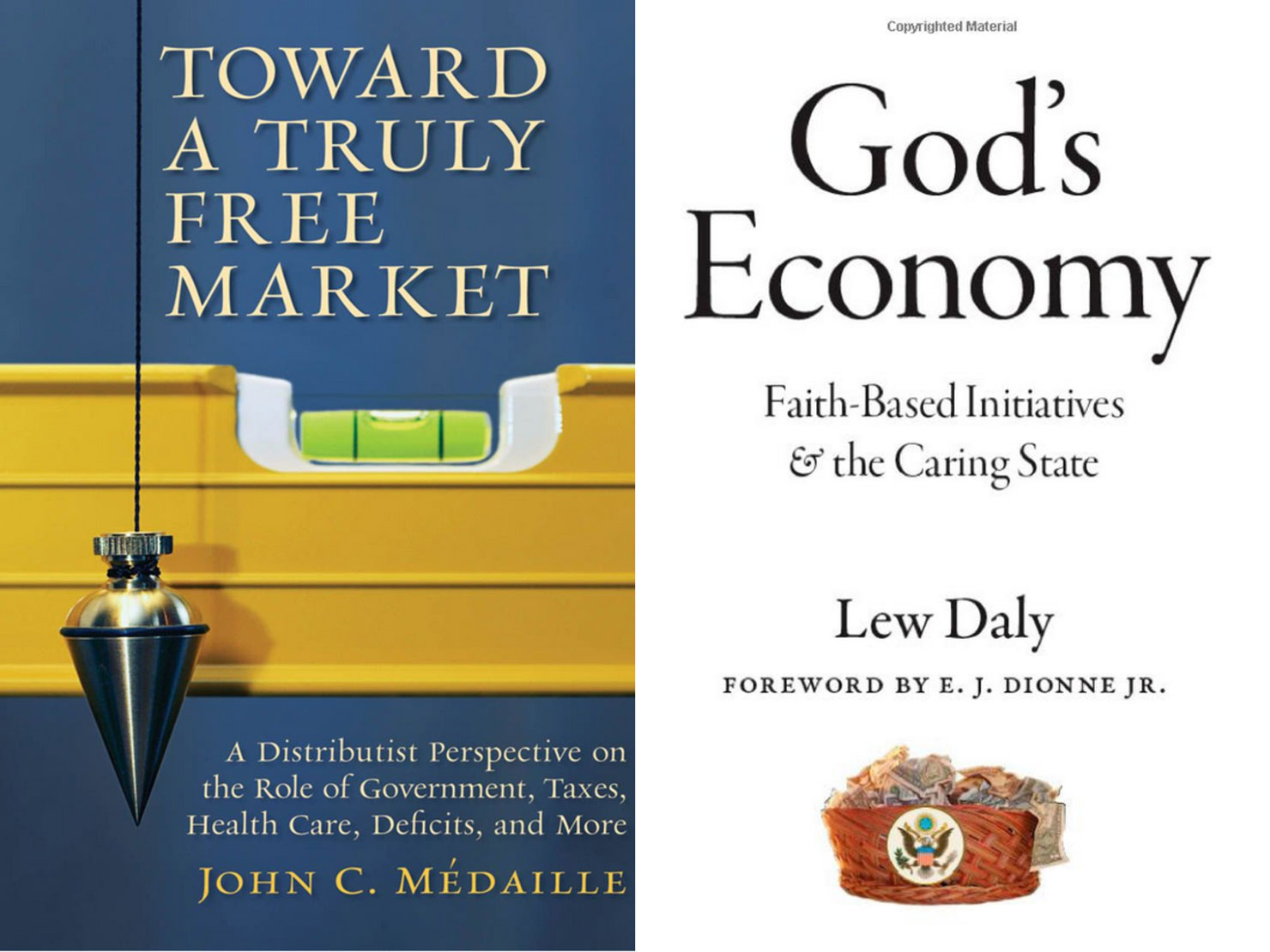Creating a Family-Centered Economy
- Post by: Brian T. Engelland
- January 12, 2011
Toward a Truly Free Market: A Distributist Perspective on the Role of Government, Taxes, Healthcare, Deficits, and More John C. MédailleISI Books, 2010; 282 pages, $26.95 God’s Economy: Faith-Based Initiatives and the Caring State Lew DalyThe University of Chicago Press, 2009; 318 pages, $37.50 Recessionary times mean job losses, belt tightening, bailouts, and greater demand for government interventions. Recessions also cause citizens to question the efficacy of the nation’s economic system, a system that continues to be subject to uncomfortable and debilitating fluctuations that strain our social-services delivery system and adversely impact the support provided to those who lose jobs, houses, and hope. “Isn’t there a better way to organize our economy and get off this roller-coaster ride?” many Americans ask. “How do we improve the safety net for those that suffer through job loss or other calamity?” These two books offer perspectives that aim to empower the family and create a more human economic system. Toward a Truly Free Market is an ambitious but intensely interesting book that, after identifying the shortcomings of classical economics, builds a case as to why distributism is a superior approach to organizing the economy. The book is wide-ranging, providing suggestions for expanding economic development, restructuring the tax system, reducing government expenses, increasing the productivity of American industry, and improving the health-care cost equation. In fact, the book tackles just about every problem having anything to do with the economy except the public administration of social services, which conveniently is the subject of God’s Economy. This second bookis a heady analysis of the history behind the faith-based and community initiative implemented during the first term of the George W. Bush administration. The book traces the origins of this faith-based approach to Christian politic
Categories:

